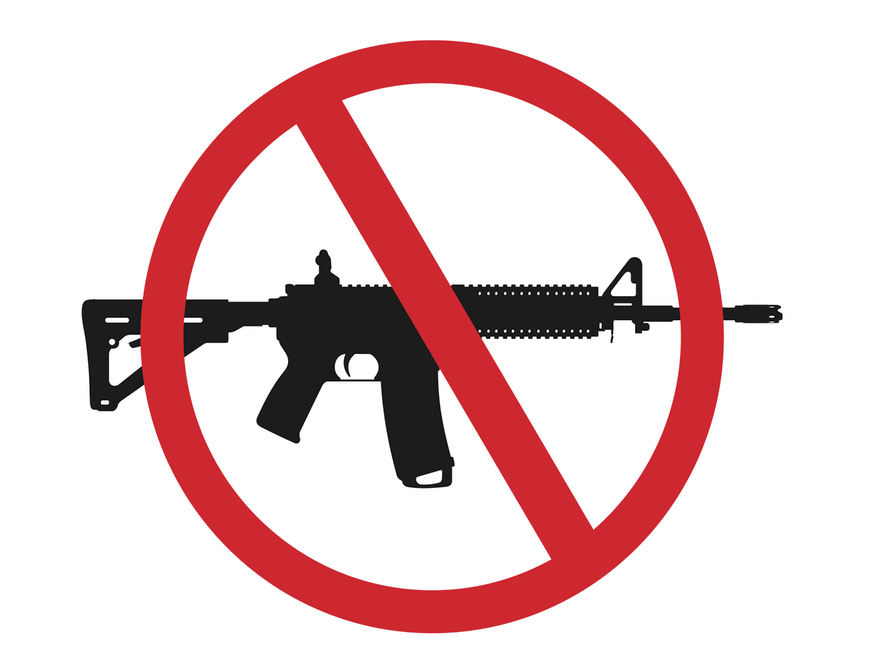
(The Center Square) – Illinois State Police say any purchase of firearms or attachments the state deems as “assault weapons” from during the six-day injunction against Illinois’ gun ban will be illegal after Jan. 1, 2024.
In January this year, Gov. J.B. Pritzker enacted the ban on more than 170 semi-automatic firearms and magazines over certain capacities. Part of that includes a registry of already owned guns starting Oct. 1 with the deadline to register being Jan. 1, 2024.
When the Southern District of Illinois federal court issued a preliminary injunction against Illinois’ gun ban last month, gun stores were busy. Those sales ended six days later when late last week the appeals court put a stay on the injunction.
After the injunction was reversed while lawsuits continue, state police said firearms purchased during the injunction will be illegal because they were possessed after the Jan. 10 effective day of the Protect Illinois Communities Act.
“Persons who possess a banned firearm or firearm attachment are required to endorse an affidavit by January 1, 2024, stating that any banned firearm or firearm attachments were possessed prior to the enactment of PICA (January 10, 2023) pursuant to 720 ILCS 5/24-1.9(d),” a public information officer with Illinois State Police told The Center Square in an email.
Penalties for possession of banned magazines is a petty offense with a $1,000 fine per infraction. Possession of prohibited firearms could be up to a Class 2 felony.
Thomas Maag was the first attorney to file a lawsuit challenging the law a week after it was enacted in January. He challenged the law on both Second Amendment and Fifth Amendment grounds protecting against self-incrimination. Arguments against the registry were put on hold when his case was consolidated with other plaintiffs groups in the Southern District.
“I think that these statements from the Illinois State Police are exactly the kind of thing that shows the Fifth Amendment arguments need to be brought to a head sooner rather than later,” Maag told The Center Square. A registry “puts those persons at risk of the state taking that exact information and using it against the owners of those firearms to try to obtain a criminal conviction for what have you, including but not limited to persons that may have acquired firearms during this six-day window.”
Illinois State Rifle Association Executive Director Richard Pearson said the ISP statement is yet another issue that the courts will have to address.
“Because the way I read it and the way almost everyone else read it was that [Southern District of Illinois Judge Stephen McGlynn] said the injunction stopped all that,” Pearson told WMAY. “So I believe there’s going to be another suit that deals with this.”
McGlynn’s injunction was stayed by Seventh Circuit Court of Appeals Judge Frank Easterbrook Thursday. Plaintiffs are to reply Tuesday to the stay Easterbrook issued in the Seventh Circuit Court of Appeals.
While the Illinois Gun Dealer Licensing Act enacted several years ago could have state police looking to inspect gun store records, Pearson said they’ll be ready to continue challenges in the courts.
“I think that they are showing that the state wants to put the bootheels of power on all the necks of the gun owners in this state and I don’t think they’re going to stand for it,” Pearson said.
Other litigation against the ban continues in state and federal courts.
By Thursday, litigants from cases in the Southern and Northern district federal courts are to respond to an order from the Seventh Circuit Court of Appeals to consider consolidation.
Separately Monday, the state and the city of Naperville responded in the U.S. Supreme Court to an emergency motion plaintiffs made for an injunction of the gun ban while that case proceeds through the federal appeals court.
In state-level court, the Illinois Supreme Court is set to hear oral arguments May 16 in a challenge state Rep. Dan Caulkins, R-Decatur, brought out of Macon County. Arguments there include that the law violates equal protections by carving out police, retired police and others in the law enforcement and security sectors.
Separately, cases brought by attorney Thomas DeVore had a status hearing Friday in Effingham County. DeVore is seeking documents from legislative leaders and third-party associations about the passage of the law. A county judge has taken the motions to dismiss and quash subpoenas under advisement.
Both Caulkins’ case and Devore’s cases have thousands of named plaintiffs with temporary restraining orders against the state from enforcing the law. It’s unclear how ISP’s statement Friday to The Center Square impacts those plaintiffs with TROs in place. The agency didn’t immediately respond to a request for comment.
“The current Macon County judgment and any TROs entered in other actions are only applicable to the specific Plaintiffs and Defendants in those actions,” ISP said in a frequently asked question section of the agency’s website. “More information will be forthcoming as additional rulings transpire through the state and federal courts and when the Illinois Supreme Court rules on the matter.”












